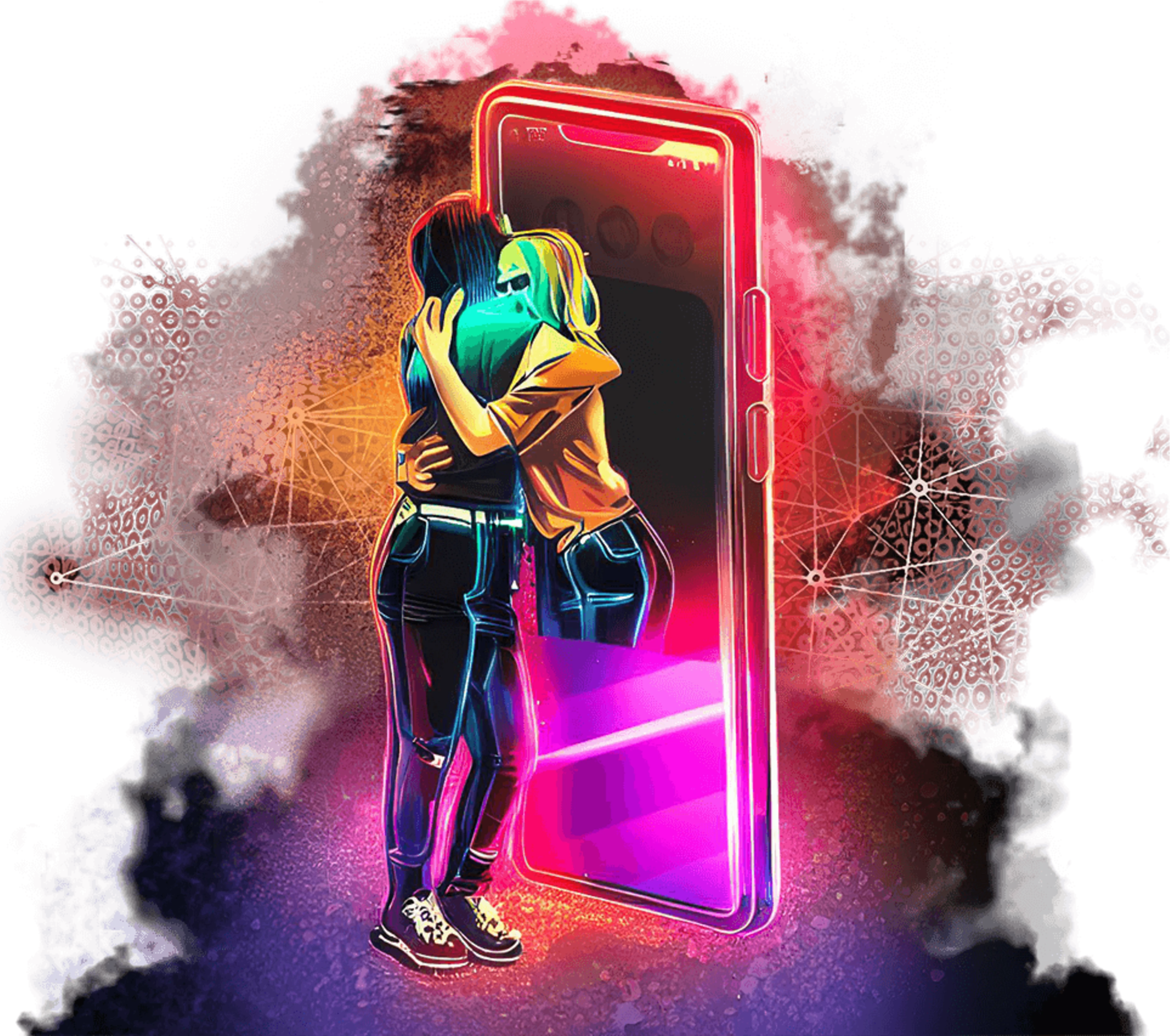In 2013, the first major research investigation was launched into online friendships. It was suggested that online friendships don’t have as much positive impact as real-life, face-to-face relationships. If anything, some of the data might have even implied that more online friends pointed to being less well-off in wealth or mental health. It might have been the first study of its kind, but it didn’t paint a pretty picture for those hoping to make lifelong bonds through the internet. Especially so for those who are either disabled, from an isolated community, or otherwise shy.
I don’t exactly have a lot of friends in real life. To clarify, I mean in a face-to-face sort of way. As someone with high-functioning autism, I always find myself to be the person who prefers to keep to himself under most circumstances. If there’s one interest I’m into that others might not have, then it’s a foregone conclusion that I will end up alone, minding my own business.
During my first year of university, I initially tried to join a group of students who have autism like me. Once again, I struggled to relate to much of the group until around November, when I simply focused on using the library for leisure and research. The membership fee for most student societies was a tad bit much for what they offered, so people like me, who are mostly frugal spenders, tend to turn away from such.
That’s my social life, as depressing as it sounds. You feel left out no matter how many people know you; it’s like being forced to join a party that you never wanted to go to, only for it to last for years.
Enter Discord. I made an account in 2019 just to join one gaming community, although I forgot about it for nearly nine months. When the COVID pandemic broke out in England, I was forced to remain at home due to a lockdown measure. At that time, I was getting into a cartoon show that was managing to build up a fandom of teenagers and young adults. In February, I joined the community to just lurk and look at some fan-made works. It was around June when I started to talk there occasionally. In September, I decided to get more active, sharing whatever content I liked online for others to see and joining in with the inside jokes. That marks when, with a bit of geeking about indie music, I started a small conversation with another user. Let’s call them ‘Assassin’.
Here’s a caveat about my initial impression of online friendships back then. I genuinely thought they were a bit of rubbish and, at times, a slightly naive kind of relationship. I once had a handful of short-lived experiences with online friends from video games. Some of these relations can sometimes be forgetful or even prejudiced-tinged. Like phone numbers, they become graveyards of vague, anonymous names once known. As a result, you have a neurodivergent person who’s awfully picky about who to be close with.
The first conversation I had with Assassin, someone who was interested in one other thing about me outside of just gaming, was a breath of fresh air. We were both interested in music that fits just outside of the mainstream. This was when things started to spiral for a bit. Assassin was friends with another user with even closer music tastes to mine, who was happy to talk about indie music with me. Then it escalated to me getting into an online social group, growing closer and more comfortable with each passing day. Now, I feel a lot more at ease with myself and with the friend group I have.
Such relationships have helped me feel better when sharing information with others worldwide. There are numerous benefits to having online friends. In OECD, sociology professor Gustavo S. Mesch highlights its potential in “improving access to information, knowledge and skills that are unavailable locally, and provide opportunities for diversification of social relationships”. An article from ABC mentioned that online media's largely anonymous side enables people to express their most vulnerable side.
We can see that as time passes by, online friends are starting to become more common, especially among the younger generations like the Millennials and Zoomers. A YouGov survey highlights how the COVID pandemic not only led to many finding their friendships ending but also put more emphasis on contacting friends through either online, video, or phone calls. In a book titled How the World Changed Social Media, numerous cited research points to how most college-educated people use online means to remain in contact with their friends after graduating. All this is on top of most people using it to make up for shallow offline relationships and curate their identity as authentic if they’re either from a country like Trinidad, or struggle to express themselves in a face-to-face scenario like me.

Even as it becomes normalised among the younger generations, the idea of having online friends is still criticised. Many argue that it lacks the depth of connection that real-life relationships do, nor do they offer a form of security from pressing issues like becoming too needy. One could flag concerns about echo chambers when you confide with like-minded individuals over unverified information. If Barbro Fröding and Martin Peterson have any say, you could wax philosophical points on how the value of online friendship is devalued when you consider Aristotle’s theory. When acknowledging honesty from someone you've never met in real life, the prospect of such a bond can be scary. So, what’s the problem with these arguments?
The key problem around the presumed ‘cons’ of online friendship is that such issues have been acknowledged in long-distance relationships ever since ancient Greece. As scary as it is to be deceived by a user with whom you would play a round of multiplayer games with now and then, lecherous and manipulative friendships have essentially been around as long as mankind has existed. Conspiracy theories and extremist beliefs existed long before the internet, documented as far back as 1863.
Numerous articles already highlight how friendship between people of varying ethnic, religious, or social backgrounds can reduce prejudice. Dr Angela Bahns’ The effect of diversity beliefs on friendship formation’ highlights how a common belief in values can help diversify your friend group. The sheer amount of presence enabled by the internet will help ensure that you will find those you will feel comfortable with, people from other parts of the country, the continent, or even the globe.
The points above on Aristotle’s theory of friendship can now work on all three aspects. He breaks down the three factors of an ideal friendship as virtue, pleasure, and utility. As the younger generations lean more towards progressive change and are more open-minded in cultural divergence, they can easily find those who share their views. The prevalence of online gaming enables many to find pleasure in each other. Finally, a utility can be extracted through a reflexive approach in giving advice or looking through resources to address a concurrent problem that someone might be facing.
My fellowship with Assassin has sadly ended as they have moved on from Discord completely. However, this one experience allowed me to develop and change into someone I did not expect to become at all. It’s something that I will never take for granted; I now know people who are from Japan, the United States, Brazil, Romania, India, and many more.
Once mocked as being a worthless metric on one’s self-esteem, having online friends is now defined less by numbers and more by an emotional connection to those from the other side of the Earth. It’s weird to say it knowing how often we use the internet now, but it’s magical how we can learn more about differences through the eyes of what would’ve been a stranger. For all the fears, an online friendship is remarkable to keep as a memory, and I wouldn’t have it any other way.
Written by
Marc CorralesAspiring writer with numerous interests including gaming and esports, complex geopolitics, underground and independent music, and how history shapes our culture.
Read next
Where did all my friends go?

Maite Oxford
Solo cinema trips aren’t admitting defeat - it’s self care.

Jess Boot-Cowie
Lonely Britain: the death of the church has killed our community

Connor McIntyre
Weekly emails
Get more from Marc
The Fledger was born out of a deep-seated belief in the power of young voices. Get relevant views on topics you care about direct to your inbox each week.
Write at The Fledger
Disagree with Marc?
Have an article in mind? The Fledger is open to voices from all backgrounds. Get in touch and give your words flight.
Write the Contrast

